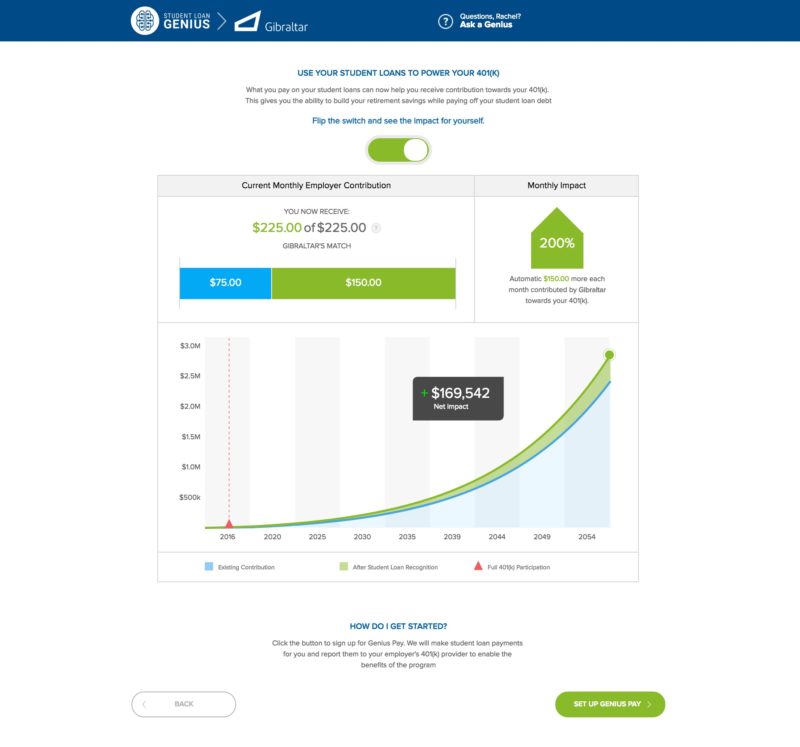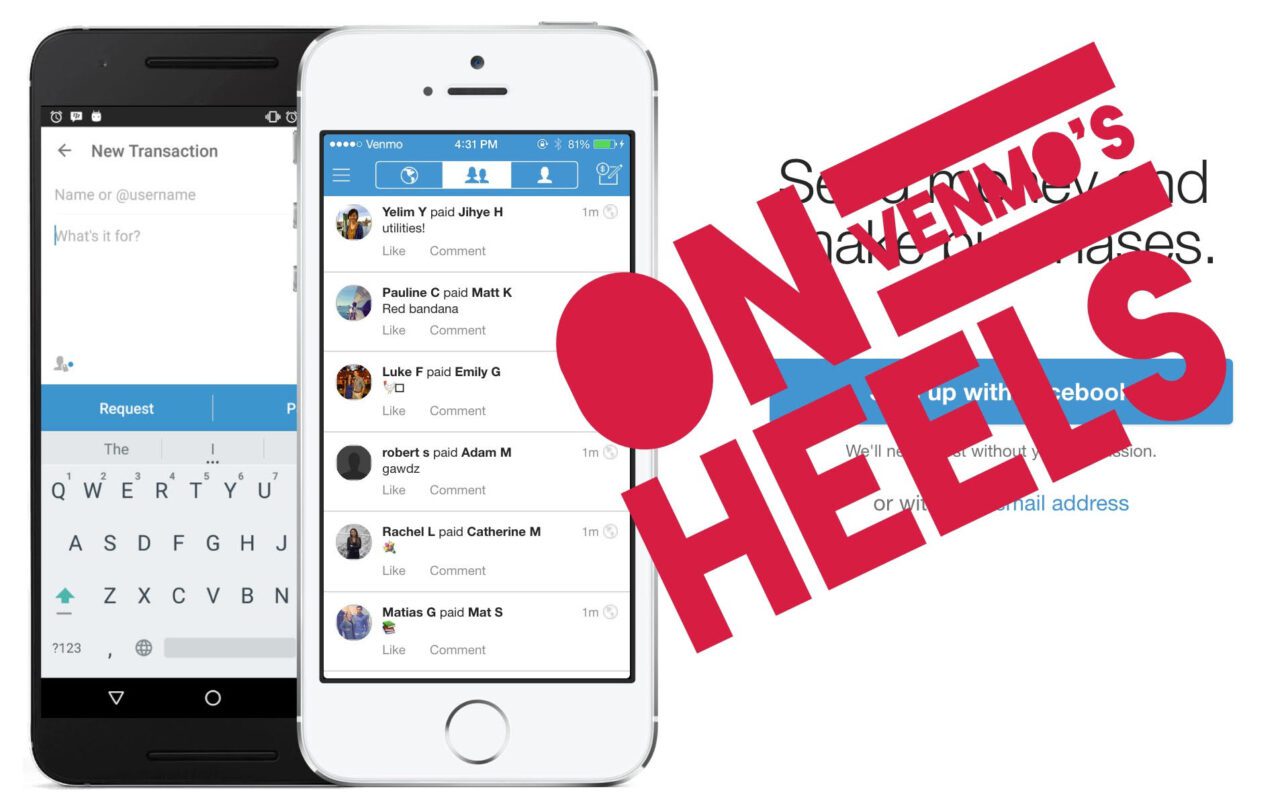
A look at the trending topics of the past two weeks, co-authored by Finovate’s research analysts David Penn and Julie Schicktanz.
Payments
Venmo competition heats up
We’ve lately noticed more P2P payment app competitors trickle in. They have Braintree-owned Venmo’s (FD2016; F2013) millennial-focused social components stamped all over them:
- Founded by former N26 employees, Cookies launched this week to offer Germany-based users a free P2P payment solution. The simple UI has a messaging platform for senders and recipients to engage with, and it allows people to include emojis with their payments (Cookies calls them paymojis). Some paymojis have special powers, for example, a lightning bolt that allows users to send the money faster. Unlike Venmo (more like Square Cash), users do not maintain a balance on Cookies; instead, Cookies connects directly to a user’s bank account.
- Tilt originally began as a crowdfunding platform but launched P2P payments functionality this week. While the user interface is very Venmo-esque with emojis, gifs and a social feed, Tilt has a few differences. Aside from being based on a crowdfunding model where users pool money for weekend road trips and pizza nights, Tilt lists fundraising campaigns in its social feed and is available outside the U.S. Tilt has already launched in the U.K., Canada, and Australia.
- Our last Fintech Trending post described the growth of P2P payment service clearXchange, which scored Fiserv (F2016) as a distribution partner and added MasterCard Send debit cardholders to its client base. The Wall Street Journal reported this week that clearXchange is rebranding to Zelle in October to step up its competition with Venmo. While there is no word yet on UI and UX specifics such as emojis with special powers, gifs, and social feeds, there have been a few questions about the name Zelle, which Urban Dictionary defines as “a girl who is attractive and intelligent.”
New mobile payments methods are everywhere (and that’s not a good thing)
Last week, CVS joined a group of other retailers, banks, technology providers and payment services companies to launch its own mobile wallet. With the launch, the pharmacy intends to streamline the use of its rewards points with point-of-sale (POS) payments, but what it may actually be doing is adding yet another wet log to the slow-burning, mobile POS-payments fire.
The issue lies in part with low consumer interest and adoption; it’s still faster to swipe (or insert) your credit card than to take out and unlock your phone, open an app, and try to convince the cashier it is a legitimate way to pay. Also at fault is the large, fragmented number of suppliers. We’ve lost count, but here’s a partial list:
- Apple Pay
- Android Pay
- Cake Pay
- CVS Pay
- Walmart Pay
- MasterPass
- Samsung Pay
- Wells Fargo Wallet
- Chase Pay
- Starbucks
- Capital One Wallet
Other news in the payments space
- UnionPay’s mobile payments launched in Canada. The China-based payments network is the third largest in the world (following Visa and Mastercard). The launch enables Canadian cardholders to use UnionPay’s QuickPass EMV cards or app to pay at participating merchants.
- Visa (FD2014; F2010) is in discussions with Nigerian banks to roll out mVisa, its QR code-based mobile payments service, by the end of this year. Consumers will be able to use their smartphone or feature phone to pay for goods with merchants, send domestic P2P payments, and access cash.
- Apple expands carrier billing to Taiwan and Switzerland. The Taiwanese carrier is EasTone and while there’s no word yet on the carrier in Switzerland, it is expected to be Swisscom. This expands Apple’s carrier-billing partnerships, already operating in Germany and Russia, to four countries.
A big deal in ATMs gets a second look
Diebold (F2014) finalized its merger with German ATM maker Wincor Nixdorf last week, a deal that combined two of the largest three ATM companies. The deal closed for $1.8 billion and makes Diebold Nixdorf the world’s largest ATM company, claiming a third of the worldwide market.
Days after unveiling the newly formed entity, the ATM giant is facing an “in-depth merger investigation” from the U.K. Competition and Markets Authority. The agency said that it is concerned the deal will reduce the number of companies supplying ATMs in the U.K. The companies have until April 26, 2017, to “offer undertaking to address competition concerns.”
This further highlights the opportunity for disruption in the ATM space, a realm where companies such as Liqpay (F2013) have showed off solutions that allow cardholders to use their smartphones for a contact-less way to withdraw cash from ATMs.
Lending
Making Sense of Student Loan Debt—notwithstanding Bernie Sanders’ promises of free college tuition for all, the challenge of student loan debt isn’t going away anytime soon. Unfortunately, a recent report from the Consumer Financial Protection Bureau (CFPB) suggests that loan servicers are a part of the problem, at least when it comes to income-driven repayment plans.
As reported in PYMNTS.com, much of the problem is bureaucratic, with “delays and rejections” that can expose student borrowers to greater interest, penalties, or even lost eligibility. “Student Loan servicers continue to fall short when it comes to helping borrowers address $1.3 trillion in student debt,” CFPB Director Richard Cordray said in a statement. “It’s time servicers focus more effectively on processing applications for income-driven repayment plans properly.”
And the CPFB is focused on more than just the student loan servicers. Wells Fargo was slapped with a $3.6 million fine this week for “illegal fees … and [depriving] others of critical information needed to effectively manage their student loan accounts,” according to Cordray. Wells Fargo said that it has already made changes to the processes criticized by the CPFB in its consent order.
It’s impossible to read about student loan debt in the headlines and not think of Student Loan Genius (F2016), which made its Finovate debut this spring. The company empowers employers to help millennial workers in particular pay off their student loan debts faster. This not only helps reduce what is often an onerous debt load (especially relative to the income of the average recent college graduate), but also enables young workers to start saving better.
Development
Make Room for Dev—Google (FD2016 ; F2011) is the latest major technology company dedicating major square footage to support collaboration between “local and international developers and startups.” Writing in the Google Developers Blog, Global Lead Roy Glasberg revealed that more than 14,000 square feet at 301 Howard Street would be the home of a variety of dev-friendly events ranging from Google Developer Group meetings to Tech Talks. The new facility will also host Google’s equity-free, three-month accelerator for emerging market startups, LaunchPad Accelerator.
Earlier this summer, IBM (F2016) announced the opening of its developer space, Bluemix Garage, in New York City. The New York garage, IBM’s sixth, will be hosted by developer networking and education organization, Galvanize. In the U.K., Allied London announced a new fintech co-work space called “The Vault” that will occupy 20,000 square feet in Manchester’s business neighborhood. Meanwhile in Germany, ING-DiBa announced its sponsorship of the latest fintech hub in Frankfurt.
Meanwhile in Asia, PayPal (FD2014; F2012) announced this week the opening of an innovation lab in Singapore, its first such lab outside the U.S. The lab joins PayPal’s other Indo-Asia Pacific innovation lab in Chennai, India, and will be focused on improving productivity among SMEs in the food and beverage industry. We also learned this week that the Monetary Authority of Singapore is setting up a fintech innovation lab, Looking Glass @ MAS1 in that country.
- “Google Developers to open a startup space in San Francisco” – Google Developers Blog
- “IBM Opens Bluemix Garage in New York City” – Finovate
- Allied London unveils fintech startup “Vault” in Manchester – Manchester Evening News
- ING-DiBa backs new Frankfurt fintech hub – Finextra
- PayPal opens Innovation Lab in Singapore for next generation fintech – Deal Street Asia
- Singapore’s MAS gets in on the fintech innovation lab game – Tech in Asia
- Fintech Groups Will Unite into Global Hubs – Fortune
Life in the blockchain
Swiss-based UBS announced a year ago its work on a virtual currency—Utility Settlement Coin—to facilitate faster transaction settlement. This week, UBS announced it has joined forces with Deutsche Bank, Santander, BNY Mellon, and ICAP to convince central banks to agree to a commercial launch by 2018. Competition for this digital currency include Citigroup’s Citicoin, Goldman Sachs’ SETLcoin, and a similar, yet-unnamed, offering from JPMorgan.
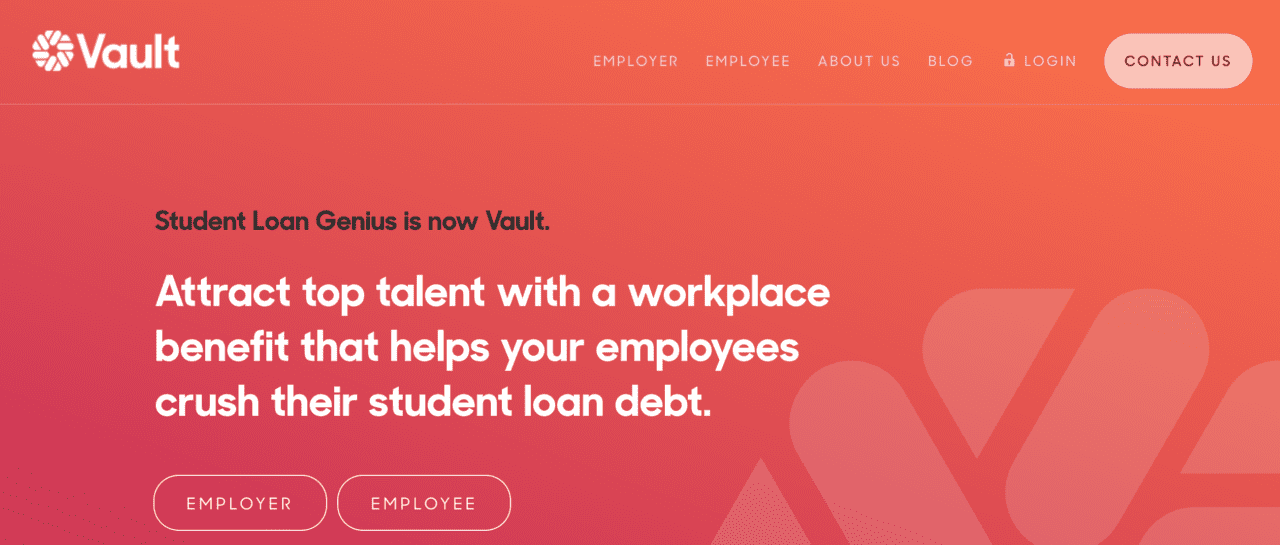

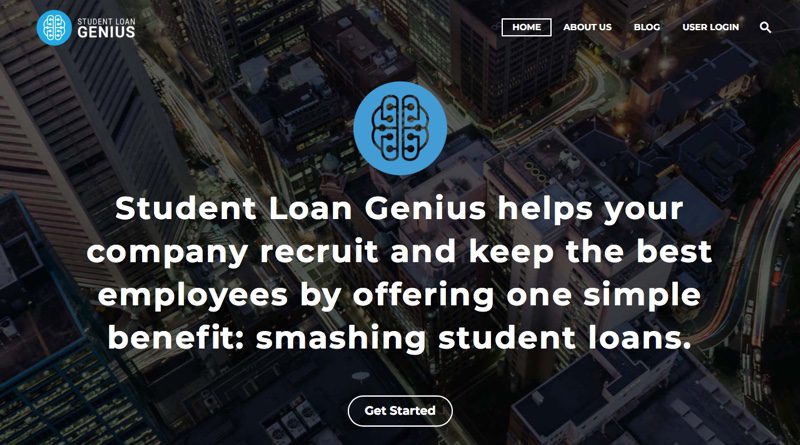
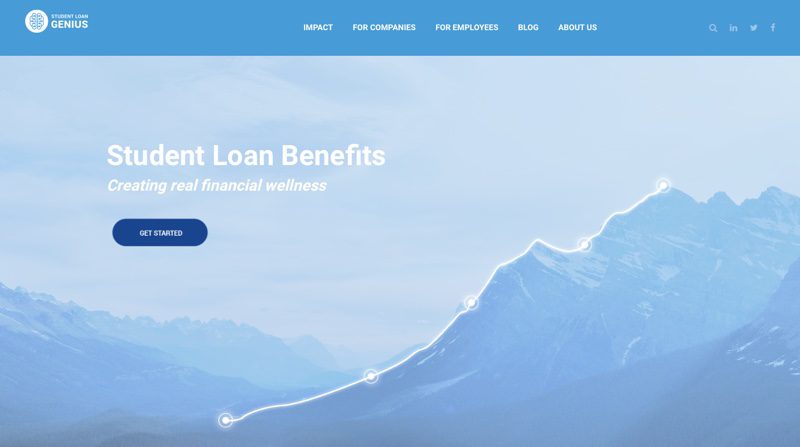
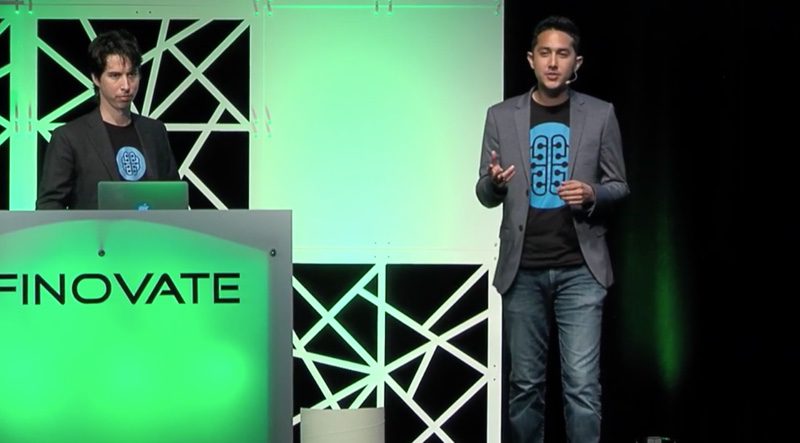

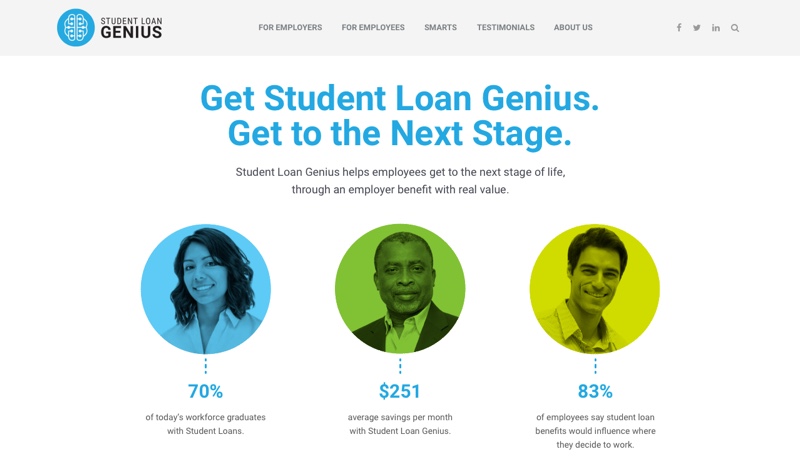

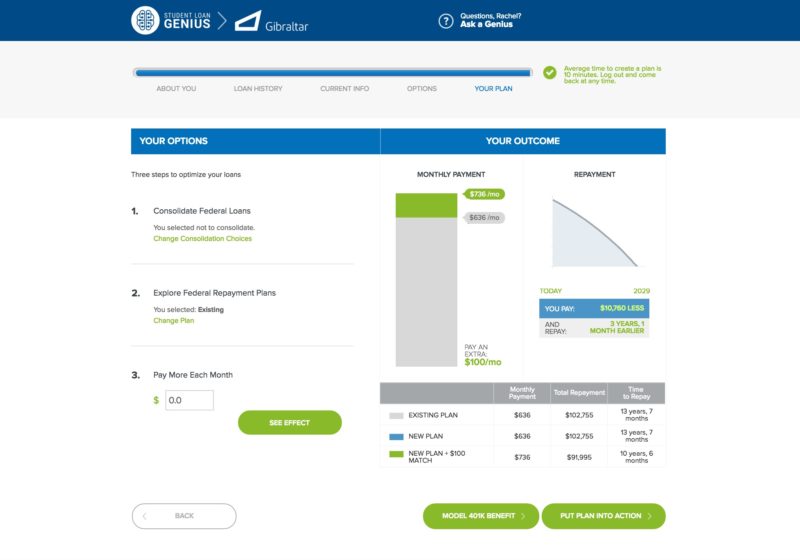
 We spoke by phone with Student Loan Genius Director of Marketing and PR Jovan Hackley during FinovateSpring 2016 and followed up with a few questions by email.
We spoke by phone with Student Loan Genius Director of Marketing and PR Jovan Hackley during FinovateSpring 2016 and followed up with a few questions by email.